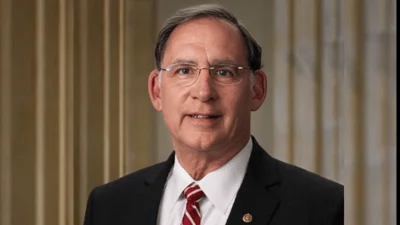Congresswoman Debbie Wasserman Schultz (D-FL), Chair of the Military Construction, Veterans Affairs, and Related Agencies Appropriations Subcommittee, delivered the following remarks at the Meeting Veterans’ Full Needs: Update on Women’s Health, Mental Health, Homelessness, and Other Programs Hearing:
Today’s hearing will give us a chance to hear from the experts leading some of VA’s critical program offices.
I am pleased to welcome for the first time before the subcommittee Dr. Erica Scavella, Assistant Under Secretary for Health for Clinical Services.
She is accompanied by: Dr. David Carroll, Executive Director of the Office of Mental Health and Suicide Prevention, Dr. Patricia Hayes, Chief Officer of the Office of Women’s Health, and Dr. Benjamin Kligler, Executive Director of the Office of Patient Centered Care & Cultural Transformation.
We are glad to have you all here with us today to discuss the Department’s budget request for Fiscal Year 2023 and how it affects these critical programs.
As I said to the Secretary at our last hearing, it’s really heartening to see this budget invests in so many key areas that make a difference in the lives of veterans.
This hearing will give us a chance to dive deeper into those areas and discuss how the budget anticipates supporting further efforts to meet all of our veterans’ needs, as well how the Committee’s work in these areas has had an impact over the past several years.
In Fiscal Year 2022, we provided $840 million for gender-specific care and women’s health programs, an increase of $111 million over the comparable Fiscal Year 2021 number.
We provided $13.2 billion for mental health programs, an increase of $2.9 billion above the prior year.
And homelessness programs were increased by $246 million to a total of $2.2 billion.
I am proud to have led the subcommittee in investing in these critical programs that have seen such a significant expansion of need.
For example, women are the fastest growing demographic of veterans seeking care at the VA. We absolutely must make sure that there are care teams in place to meet their needs, that facilities are safe and welcoming spaces, and that veterans feel truly welcome in a healthcare system that values them.
We need to reach a point at which women’s health care is not an afterthought, but an intrinsic, well-planned part of the basic health care delivery system.
I have been encouraged by the progress that VA has made in this area in recent years, and I look forward to hearing more about what’s to come.
We have also seen increased need in mental health programs and homelessness programs, as veterans continue to be at too great a risk for unstable housing, suicide, and substance use. The pandemic exacerbated many of these issues, and while the CARES Act and American Rescue Plan Act gave VA needed resources to boost them through the darkest days of the pandemic, there will clearly be a lasting impact on our veterans in years to come.
So, I look forward to discussing how we can sustain those efforts and ensure that we continue to make progress in addressing these challenges.
I’m also pleased that today’s hearing will give us a chance to hear about some of VA’s forward-looking initiatives, like the Whole Health program, which I know is of great interest to many of the members of this subcommittee. The subcommittee has sought to give VA resources to steadily expand the Whole Health program to additional sites so that more veterans can benefit from its approach to a model of care that goes beyond treating the physical symptoms of diseases, and considers the physical, mental, emotional, spiritual, and environmental needs of veterans as well.
This approach has been shown to have significant benefits for veterans and has the potential to reduce health care costs overall.
So, thank you all for being here today. I am looking forward to a dynamic conversation.
Source: U.S. Department of HCA









